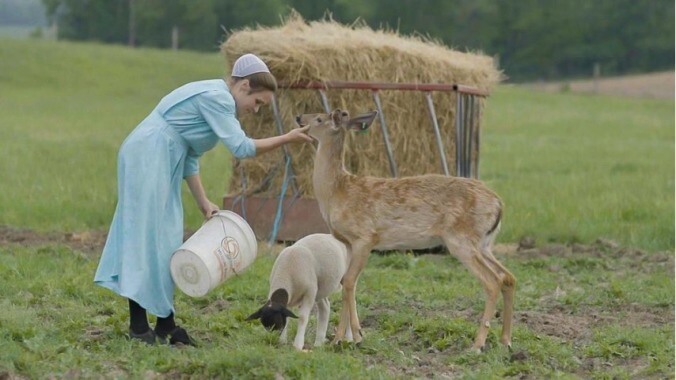Amid a Maternal Mortality Crisis, Midwives Are Being Targeted
Over a third of U.S. counties are currently maternity care deserts. Arrest the Midwife, which recently premiered at SXSW, tells the stories of three midwives recently arrested for trying to bridge those care gaps.
Movies
When director Elaine Epstein and her wife decided to have their first child, the entire process felt wrong. “We went into it blindly, we followed all the prescribed medical routes for a gay couple to get pregnant,” she recounted to Jezebel. But the couple struggled with the impersonal, clinical setting and feeling unheard by health care workers. Working with a midwife who “got to know who we were” changed everything, Epstein said. The couple had their first daughter at a midwifery practice attached to a New York City hospital. But when they tried to return a couple of years later, as they planned for their second child, they found it was closed.
Epstein researched further, eventually theorizing that the hospital system shut down the practice because midwifery—a health profession that offers more personalized care—generates far less profit than the conveyor belt of hospital births. And then, upon even further research, Epstein learned that midwives across New York state are being pushed out of their work thanks to rigid licensing laws. In 2019, Epstein discovered the story of Liz Catlin, an upstate New York-based midwife who worked primarily in Amish communities and had just been arrested. “At first, Liz didn’t really respond to me, and then when we did connect, I thought the case against her was so ridiculous, I didn’t think it would go anywhere,” Epstein said. Then, shortly after they spoke, Catlin was indicted on 95 felony charges. “And so, I packed my bag, went upstate, and we started filming.”
Catlin and two other New York midwives, Linda Schutt and Melissa Carman, ultimately became the subjects of Epstein’s latest documentary, Arrest the Midwife, which premiered at SXSW in Austin, Texas. This week, a Texas midwife, her employee, and a nurse practitioner were all arrested, and charged with allegedly providing illegal abortions practicing without a medical license.
All three midwives served primarily Mennonite communities, which are highly private and, for generations, have exclusively chosen home births facilitated by midwives. Filming the documentary required Epstein to build trust with community members, and she said she was surprised and heartened by how enthusiastically Amish families, who traditionally avoid activism and the political sphere, rallied in droves behind Catlin, Schutt, and Carman, and began organizing for policy change.
-

-

-

-

-

-

-

-

-

-

-

-

-

-

-

-

-

-

-

-

-

-

-

-

-

-

-

-

-

-

-

-

-

-

-

-

-

-

-

-








































